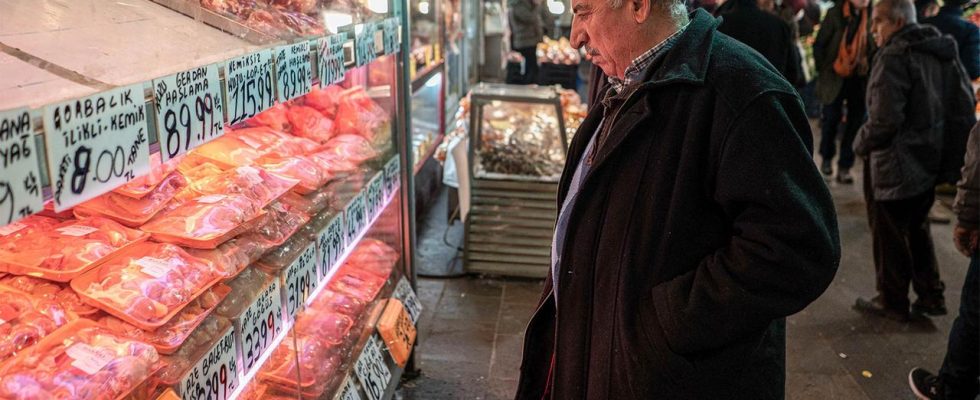Consumer prices in Turkey rose significantly more than expected in August. In addition to the weak national currency, tax increases again fueled inflation.
In Turkey, high inflation has continued to accelerate. Consumer prices rose by 58.9 percent in August compared to the same month last year, the Statistics Office in Ankara said today. In July, the inflation rate was still 47.8 percent. Economists had expected inflation to increase. On average, however, they had only expected an increase of 55.9 percent.
Visits to restaurants, cafés and hotels in particular became more expensive during the travel season. Compared to the previous month, inflation in this area was 9.1 percent. In the fall of last year, Turkish inflation peaked at 85 percent.
Taxes as a price driver
Finance Minister Mehmet Simsek commented on the development that it would take some time to reduce inflation. “We are patient.” Simsek was appointed finance minister after President Recep Tayyip Erdogan was re-elected in May. He held this position until 2018.
On the one hand, the government itself contributed to the price increases by raising VAT from 18 to 20 percent. Corporate taxes were also increased, as were taxes on petrol and diesel. The hoped-for additional income will be used to finance the reconstruction after the devastating earthquake in February. Before the election, the government had also spent more on social assistance than ever before and almost doubled the minimum wage.
On the other hand, the devaluation of the national currency was at the expense of consumers, because the weak Turkish lira made imports more expensive. The exchange rate has collapsed by around 70 percent against the dollar in the past two years. The lira also lost significantly against the euro.
Change of course by the Turkish central bank
Due to persistently high inflation and the weakness of the lira, the central bank, which had previously even counted on falling interest rates, has now changed course. Since the base rate was cut from 9.0 to 8.5 percent in February this year, the central bank, under its new boss Hafize Gaye Erkan, initiated the monetary policy turnaround in June in order to stem the depreciation of the national currency. In the meantime, the key interest rate has been raised three times – most recently on August 25 from 17 to 25 percent. This should make the currency more attractive for investors again and stop the fall in prices.
Until then, Erdogan had viewed high interest rates as “the mother of all evils.” He had advocated low interest rates to fight inflation. In his view, low interest rates should mean cost savings for companies, which could then lower their prices. According to current economics, however, inflation is combated by increasing key interest rates.
robust economic growth
Despite the high interest rates, the economy is growing robustly. From April to June, gross domestic product increased by 3.8 percent – that was more than economists had expected and almost as much as in the first quarter with 3.9 percent. However, economists fear that the high interest rates could affect the economy.
“Growth will slow down in the second half of the year,” said Capital Economics economist William Jackson, given the rise in borrowing costs. For 2023 as a whole, analysts predict an increase of 2.9 percent.

